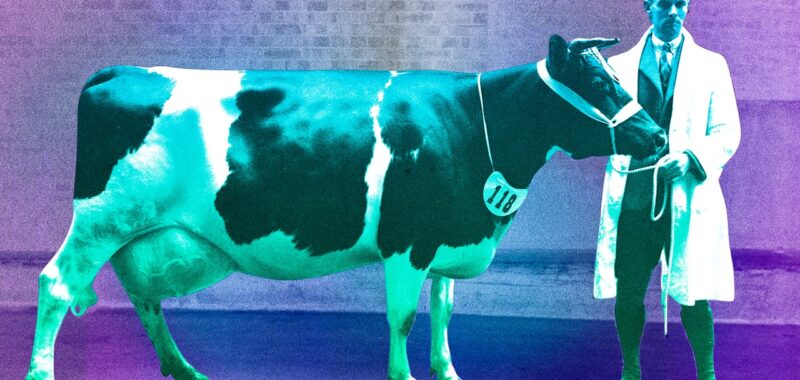If you’re even tangentially into exercise and wellness, there’s a reasonable chance you have seen colostrum all over your social media feeds. It’s the nutrient-dense milk that all mammals produce during the first few days of breastfeeding. Human colostrum is vital for newborns, but supplement brands are pasteurizing and processing cow’s colostrum for adults seeking a quick fix to level up an array of health, fitness, and aesthetic goals. The “liquid gold” is being peddled by biohacking bros and wellness girlies alike, with claims as diverse as sealing your gut and immune barriers, improving athletic performance, and promoting muscle gains. But are these benefits all they’re cracked up to be?
Why Colostrum—and Why Now?
Packed with proteins, growth factors, antioxidants, prebiotics, immunoglobulins, and up to hundreds of other functional compounds, colostrum has been a fairly elemental component of life on earth since mammals evolved many millions of years ago. But Maddie Pasquariello, a Brooklyn–based registered dietitian nutritionist, says colostrum’s current rise aligns with contemporary nutrition trends.
“It specifically nests well into the return we’re seeing of raw dairy products and animal products in general,” she says. “There are even elements of the trad-health and anti-intellectualism discourse: this ‘return to nature, straight from the source’ view of things.”
Beyond the ease and convenience of hedging your bets with a one-and-done supplement, there’s likely a solid dose of FOMO at play. After all, if an athlete, podcaster, or influencer you follow says that colostrum “healed” or “fixed” them—or at the very least is part of their personal brand of being lean, swole, bloat-free, or beautiful—your lizard brain probably wants in on the action, too. (Such content often comes with a promo code, at which point how could you resist?)
Do the Benefits of Colostrum Actually Check Out?
As attractive as colostrum supplements may seem, conclusive, high-quality research in healthy adults is scarce. Unsurprisingly, claims are also often exaggerated by brands and influencers.
Pasquariello says that some (typically small) studies suggest potential benefits for athletes and people with specific gastrointestinal conditions like ulcerative colitis. For instance, in a 2023 study of 28 male soccer players, those who took bovine colostrum (versus a placebo) for six months had a significant increase in infection-fighting IgG antibodies and a reduction in inflammatory markers—but these changes had no major effect on their actual performance. Another 2021 review in the journal Nutrients pointed to limited and conflicting evidence on the benefits of bovine colostrum for physical performance and body composition, including muscle growth and fat loss. Some more optimistic studies have been published—including potential perks for post-exercise muscle damage in soccer players—by supplement companies funding the research.
Colostrum’s effects on gut health are also less impressive than your social feeds might lead you to believe. A 2024 review of 22 clinical trials found the most promise for supplementation in reducing the frequency (but not duration) of diarrhea. Studies that looked at other markers of gastrointestinal distress, including abdominal pain, showed inconclusive results.

